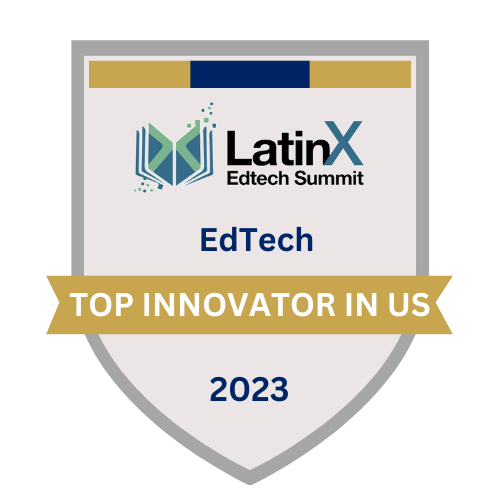Online PD : Adress Cognitive Diversity
Online PD
Address Cognitive Diversity
About
As an educator, chances are high that you’ll come across a student who is Dyslexic, Twice-Exceptional, Autistic, or has an emotional and/or behavior disorder or non-verbal learning disability. This is because every student is born with a unique cognitive profile that continues to grow and change as they do. Chances are low that you’ve been formally taught best practices for each learning difference. In this program, you’ll learn how each cognitive challenge manifests in the classroom and what routines and systems you can put into place to help. Conclude the program with clear methods to support students and proven educator strategies that improve students’ classroom experience.
Program at a glance
- Subject: Science of Learning
- Level: Introductory
- Language: English, Spanish
- Video Script: English, Spanish
- Prerequisites: Bachelor's Degree
What you will learn:
Signs, teaching strategies, and accommodations for the most common learning differences in classrooms today including Dyslexia, Autism, Twice-Exceptional, Non-verbal Learning Disabilities, and Emotional and Behavioral Disorders What is Universal Design for Learning and how to use it in your lessons How to target and strengthen cognitive skills to improve learning ability
How you will learn:
Live Webinar (recording available) 7 Video micro-lessons from experts Group Discussions 8 Visuals and Graphic Organizers 2 Application Guides (one-page guides of classroom strategies/techniques) Ongoing self-checks and application of concepts Direct access to your Program Leader Opportunities to give and receive feedback from your peers Teaching practice reflection
Who you learn from
Global experts on human learning provide the scientific base of our content, while program facilitators and subject matter experts translate the science and guide application to your classroom.

Dean Bragonier
Founder of NoticeAbility, Expert in Dyslexia
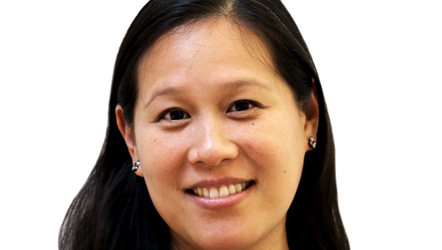

Peling Li
Curriculum Designer, Adjunct Faculty Johns Hopkins University


Carmen Constantinescu
Director of Special Education at Urban Teachers/Johns Hopkins University
What Educators Are Saying
Research-Informed Instructional Design
Priming Activities
Priming quizzes and open-ended interrogatories are used to get learners to think about the subject matter they are about to learn.
Video Micro-Lessons
Video lessons are delivered by 12+ expert educators, and leading researchers experienced in the translation of research on the science of learning into classroom application.
Classroom Application Guides
Takeaway posters are provided throughout the modules to guide the effective implementation of the concepts covered.
Retrieval Practice
To foster durable, flexible, and enduring learning, we apply retrieval strategies throughout the program, including elaboration, spacing, self-testing, and interleaving.
Peer-Based Feedback & Reflection
Learners receive and provide peers with anonymized feedback on lesson plan application assignments for deeper learning.
Alumni Practitioner’s Platform
Program alumni (Science of Learning Practitioners) can join an online platform to share resources and strategies for ongoing application of concepts and guidance.
COGx Program Leaders
Program Leaders are assigned to support your learning journey. They monitor the Program and respond to your questions. You can also contact your Program Leader for on-demand support.
Application Hour
Under the guidance of the Program Leader, educators apply academic research to their specific student population and subject matter during live, virtual training sessions.
Discussion Boards
Modules include Discussion Forums to share ideas, collaborate, and provide and receive valuable peer feedback. Program Leaders are also constantly available seek clarity or ask a question on any topic throughout the learning journey.
Other Science of Learning Programs
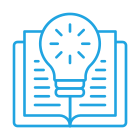
Introduction to the Science of Teaching
Get an overview of the Science of Learning including evidence-based teaching practices and strategies. Hone your teaching practice by learning proven techniques and ensure students leave your classroom prepared for the ever-changing job landscape.
7 hours

Processing Information: Foundation to Learning
Learn how to capture your students’ attention, address processing speed, and unlock the gateway to learning - working memory. Gain a toolbox of strategies that can be applied to your teaching.
9 hours
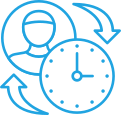
Support Executive Function
Skills
Why are some students impulsive and procrastinate, while others have difficulty planning and organizing? Crack the code of Executive Function and unlock your students’ full potential.
7 hours
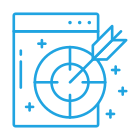
Teach for Mastery
Why is most of what we learn forgotten? Why do students overestimate how well they know what you teach them? Gain a toolbox of strategies that will ensure your students remember what you teach them and can apply it to real-life.
10 hours

Metacognition & Feedback
Did you know that one of the most effective ways to improve academic performance is by strengthening metacognition? Learn the “ins and outs” of metacognition, metacognitive strategies to embed alongside instruction, and ways to provide effective feedback.
10 hours

Teach for Belonging & Wellbeing
On average, 1 out of 2 children suffer from trauma globally while student engagement decreases with every year of schooling. What does this mean for teaching and learning? Discover evidence-based methods to increase student engagement and foster student wellbeing.
8 hours

Address Cognitive Diversity
How do you effectively engage and teach your twice exceptional students? How about those with language processing disorders? Learn how your student’s cognitive profiles affect their learning in your classroom and what strategies and systems you can put into place to effectively teach your diverse learners.



